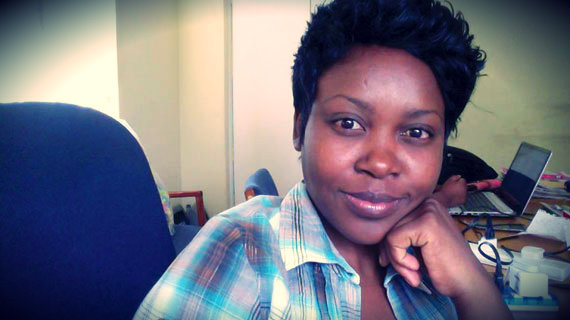
I WAS rather amused at the hasty manner in which the South African government has moved to divest itself of any mediatory obligations towards Zimbabwe having had to baby-sit the country’s politicians for nearly half a decade.
Agreeing to Disagree with Delta Milayo Ndou
It must be a great relief for South Africa to be able to tell the United Nations, to tell Sadc and whoever else cares to listen, that “Zimbabwe is a closed chapter” as far as they are concerned.
I’m sure if diplomatic etiquette did not preclude it, our Mzansi kin would have added “good riddance” to that particular communiqué.
If nothing else, this communication demonstrates a firm and categorical desire by South Africa to extricate itself from the circus that is Zimbabwean politics and it imputes upon the citizens of Zimbabwe — within and without the country’s borders — to take ownership of the condition of their nation.
We cannot interminably hog the regional limelight as if other countries do not have pressing internal concerns to attend to and as the outcome of the elections transform the political terrain, we get to decide on two things.
The first thing is whether or not we agree that Zimbabwe, insofar as an inclusive government constituted it, is a closed chapter. The urge to resist the finality implied by South Africa’s claim to a closed Zimbabwean chapter is tempting, but so often, we forget that it is impossible to start afresh until we embrace an end.
The second issue is that refusing to let this chapter close means to realise a state of limbo and to suffer a crippling incapacity to plan ahead brought on by a stubborn insistence that what is done could possibly be undone – by court challenges or other means.
- Chamisa under fire over US$120K donation
- Mavhunga puts DeMbare into Chibuku quarterfinals
- Pension funds bet on Cabora Bassa oilfields
- Councils defy govt fire tender directive
Keep Reading
What is done is done; perhaps that is what closing the chapter on Zimbabwe means. It means that regional leaders in general and South Africa in particular can focus their energies on other critical issues rather than trying to help Zimbabwean leaders to aim their pee straight.
It goes without saying that the efforts of Sadc and its facilitation team were a valuable and timely intervention that gave the people of Zimbabwe a four-year reprieve and afforded those aspiring to hold political office across the divide the chance to catch their breath.
It is not possible, in my limited experience, to move forward with heels dug in on anything. As such, it would be necessary that those who ostensibly “lost” in the election go back to the drawing board, regroup and wherever possible glean a few valuable lessons from the setback.
A prolonged state of confusion and hazy sense of direction with regards the next steps towards recovery is corrosive to the hopes and dashed dreams of those who voted looking forward to a new government.
It is a painful thing to have one’s dream stolen, but it is a tragedy of enormous proportions to allow the memory of that theft to paralyse and incapacitate you. Our foes prevail over us only when we give in and decide to lose hope.
And perhaps we need to have a common understanding of what giving in looks like so that, going forward, we can strategise from a shared frame of reference. I would concur with South Africa’s view on the state of Zimbabwe in the aftermath of the harmonised elections and what in my view is its farcical outcome — the chapter is closed.
What remains open, however, is the next blank page after this chapter. What remains alive to possibility and what our hopes can latch onto and our dreams can hinge on, is the undeniable fact that five years from now there exists an opportunity to rewrite the narrative.
It is an opportunity that can only be realised by the choices we make today and the resolutions that we commit to here and now.
But any resolutions that look five years into the future can only rest upon the closing of this chapter because for as long as we insist on keeping it open, we inevitably take up huge chunks of irreplaceable time fighting futile battles — in court challenges and elsewhere when our energies would be best served by opening a new chapter.
In many of life’s circumstances, defeat is as inevitable as death, the only difference is that in defeat there is the chance of recovery while in death there is only the finality of the irremediable.
Five years can be a long time depending on how you choose to spend it. It can be a very short time depending on how you invest in it.
We are a breath away from 2014 and as we head towards it, it would be of great comfort to face that future with a concrete plan of where we go to next as a generation thirsting for leadership renewal.
Allowing this chapter to close is a high price to pay for those who feel cheated, but it is perhaps the only currency with which to lay claim on a new chapter and to rewrite the narrative of Zimbabwe.
But that’s just me. I could be wrong. We can always agree to disagree.
Delta Milayo Ndou is a journalist, writer, activist and blogger










